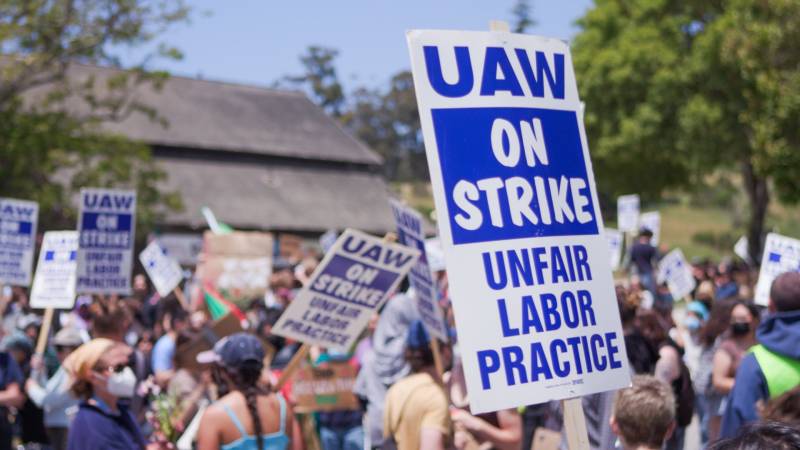State regulators denied the University of California’s claim that recent academic workers’ strikes are illegal, clearing the way for thousands of graduate teaching assistants, researchers and others to continue walking off the job as the union expands its strikes this week.
The decision by the California Public Employment Relations Board, or PERB, found the UC did not demonstrate “sufficient grounds” for bringing its complaint, the second time in recent weeks that it declined to order an immediate end to the strike.
Rafael Jaime, a Ph.D. student at UCLA and president of United Auto Workers Local 4811, which represents 48,000 academic workers across the UC system, said it was “heartening to see that PERB has once again upheld the law.”
“We said last week that if UC did not make progress in addressing the serious unfair labor practices, as many as three more campuses could be called to stand up,” Jaime said. “UC instead chose another week of legal saber-rattling.”
The UC system will now seek to elevate its complaint to a breach-of-contract action in state court, said Melissa Matella, associate vice president for systemwide labor relations.
